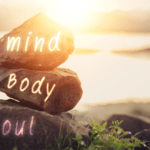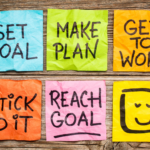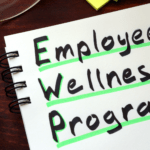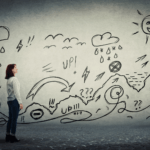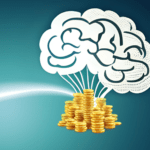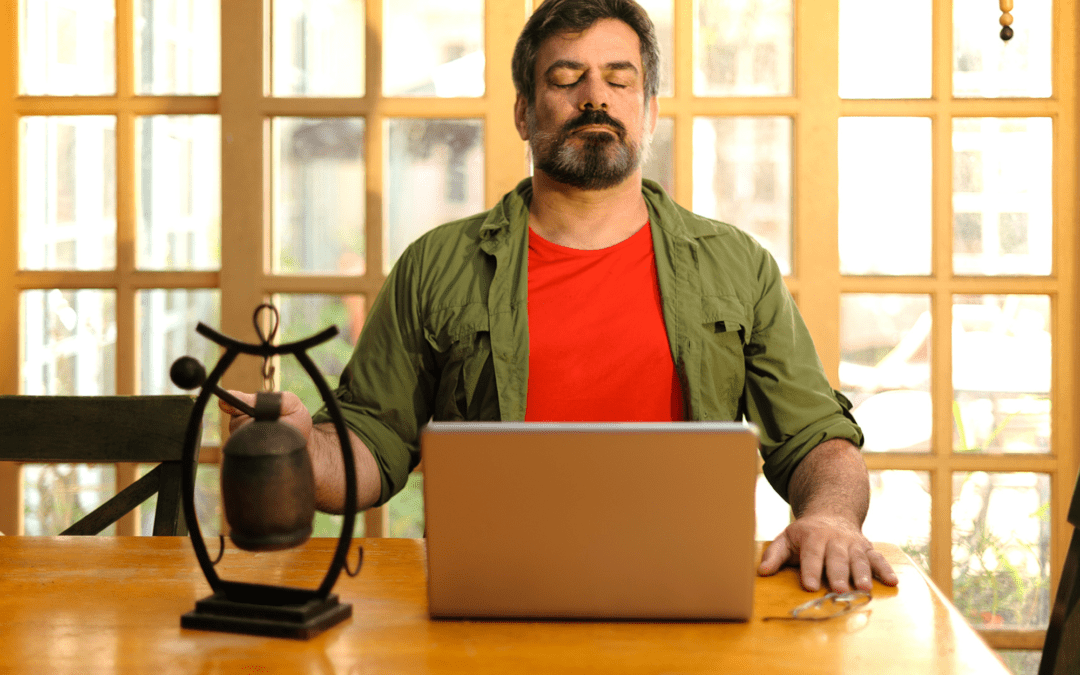
How to Achieve Flow State: Practice 5 Key Steps
Learn how to achieve flow state and reap the benefits of focus, joy, creativity, ease, and fulfillment in your work.
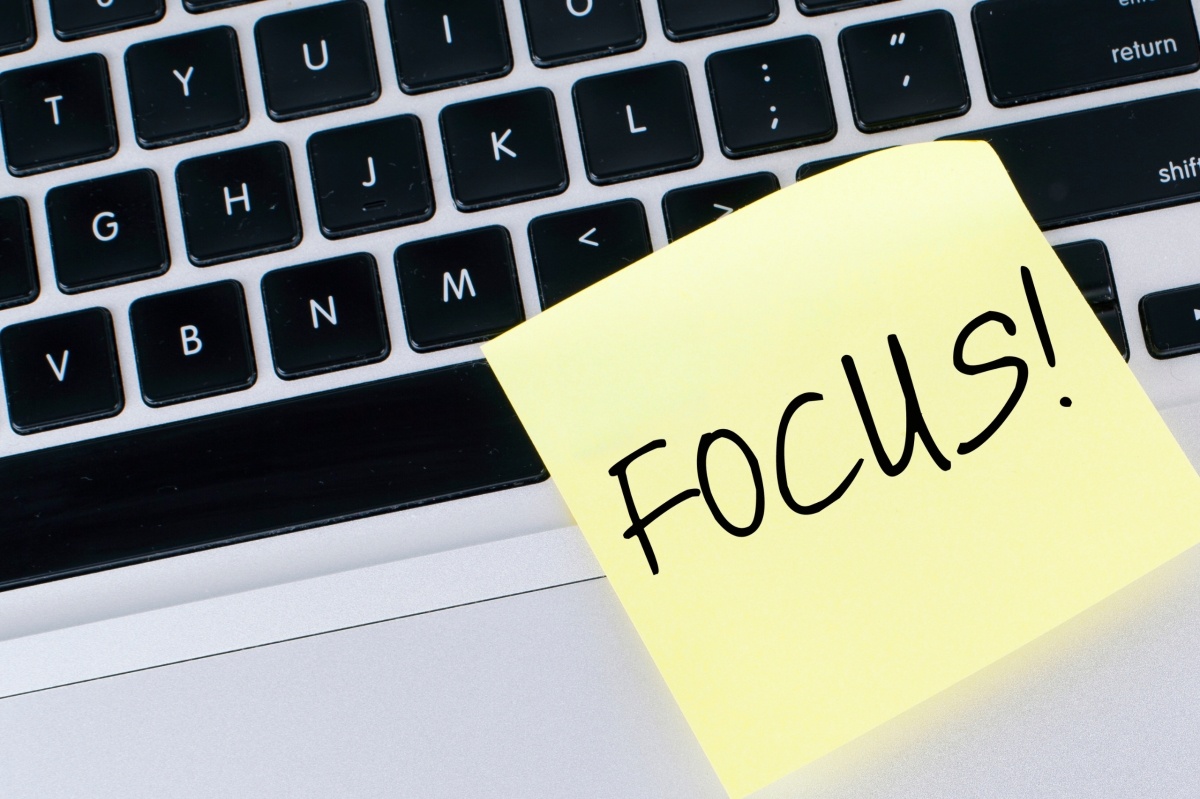
‘The best moments in our lives are not the passive, receptive, relaxing times…The best moments usually occur if a person’s body or mind is stretched to its limits in a voluntary effort to accomplish something worthwhile.” – Mihaly Csikszentmihalyi, Flow – The Pyschology of Optimal Experience
While the science of flow is still being researched, read on for our 5-step roadmap to help you reach this super state faster.
Flow State – a Quick Breakdown
Have you ever experienced a moment when you felt ‘in the zone’, so focused on the task in front of you that all the noise and chaos in the background seemed to melt away? Flow is all about immersion, which requires present-state awareness to the exclusion of everything else. And everything else here is not just limited to the external. It is all your other thoughts, ideas, compulsions, and obligations.
This is what makes flow so powerful. It requires (1) the pursuit of a worthwhile, meaningful activity that challenges our mind or body; (2) unification with that activity such that our conscious and subconscious minds also become united. At this stage the experience itself, rather than the product or outcome, becomes truly enjoyable.
You’ve probably experienced flow before doing something you love. Now let’s talk about how we can get you there faster, and with regularity. Heads up, it’s not easy. For any mental super state, practice and patience are a must.
How to achieve flow state – your 5-Step daily Protocol
Achieving Flow State Step 1: Choose a Worthy Priority
Let’s get honest with ourselves first. 80% of tasks are not ‘exciting’ enough to achieve true flow state. Now there are many similarities between ‘flow’ and ‘zen’ states. And indeed, you can and should get zen with anything you do. For example, sweeping the floor or chopping your vegetables are tasks you can be fully present, calm, and enjoy doing. This is what zen is all about. Simply bringing the light of awareness to a task.
Being zen means being mind”full” instead of mind”less”. But true flow, and the unparalleled joy it delivers, requires a few extra components. It requires choosing an activity that is both (a) meaningful to you; and (b) challenging.
(a) Deciding what’s meaningful to you can take some time. You need to most past the reactive mind and get to know your deeper self. What gives you purpose? What makes you feel alive? How do these tie into your work, passion, or hobby? Take time to explore the answers.
If you can, find the meaning in every area of your life — especially your work. Writing and finding new ways to explain and teach concepts, for instance, is very meaningful to me.
(b) Choose something that is challenging. Perhaps you want to reach the next level of expertise at something you’re already proficient at. Or maybe you want to pursue something new that always felt just out of reach. For example – I often see in my male clients, a proclivity to enter flow state when they do something supposedly gender non-conforming (at least per the social conditioning they may have received). Learning how to dance is one I often recommend. It requires full focus, challenges subconscious bias, engages brain-body coordination, boosts learning and memory, and much more. All of this works together to push them into and through the unfamiliar and into flow. They feel more alive than ever. And their confidence and self-esteem shoot up as a result.
Mihaly Csikskentmihalyi, who is credited with coining the term flow state and is a notable positive psychologist, observed:
“Most enjoyable activities are not natural; they demand an effort that initially one is reluctant to make. But once the interaction starts to provide feedback to the person’s skills, it usually begins to be intrinsically rewarding.”
Achieving Flow State Step #2: Alert Your Brain and Body to Exclusive Focus
Now that you’ve chosen a valuable activity to induce flow state — let’s communicate the message to your brain and body that upcoming is a session of worthwhile exclusive focus. In an ideal situation, we wouldn’t have to add the limiting descriptor of ‘exclusive’ since focus by its nature should be targeted. But because we’ve been misled into believing multitasking is a talent, and conditioned by the internet along with the modern workforce to continually multitask (especially in our minds), we must specify this message of ‘exclusive focus’ to the brain until it relearns what focus is all about.
I suggest you communicate this message by creating a flow state ritual in a few important ways:
(1) State your intention to yourself clearly. Be specific here about what you’re about to do and why.
(2) Relax. Use deep breathing to ease any tension. Anxiety and stress are roadblocks to flow.
(3) Do a physical activity that you reserve for flow. Drink a specific type of tea, jog in place for a few minutes, or listen to a particular type of instrumental music.
By combining the above three steps into your own unique flow state ritual, you are creating a trigger to alert the brain and body that deep focus is about to follow. This new habit will help you cue flow mindset soon.
Achieving Flow State Step #3: Ignore Distractions at Every Turn
To make progress at inducing flow, you must train yourself to stay in a ‘single-track mindset.’
This means ignoring both external and internal distractions. Start by doing this for a specified amount of time. For example, a single pomodoro session of 25 minutes. Then work your way up to several pomodoros or ideally until a preset chunk of your activity is completed.

External distractions like emails or phone calls are easier to avoid.
Internal distractions that come in the form of pesky thoughts, unsettling emotions, charged memories, future worries — these are much harder to ignore and take methodological training. That’s because they get wired into automation by the subconscious.
In my neuroperformance course, I help clients identify, understand, resolve, and redirect all kinds of these negative internal habits. One of the huge benefits is later when we cover how to achieve flow state, they’re able to do it with ease.
Achieving Flow State Step #4: Learn Your Peak Performance Times
While it’s not easy to understand the nuances of your energetic state, which is influenced by dozens of variables and is often in flux, it’s important to start noticing it. Start by identifying your natural proclivities when it comes to difficult tasks.
For most of us, mornings are ideal. We are rested, with a fresh and alert mind. This is the best time to take up challenging work suitable to achieve flow.
On the other hand if the activity isn’t work-related, early evenings are excellent. At this point in your day, you should give yourself permission to get fully immersed in your hobby or passion. Go all in and don’t fret about work the next day or any other obligation. Fretting is one of those pesky internal intrusions that will zap you right out of flow.
Also, start to pay attention to what foods, exercise, and stress-relief works best for you. These are what I call daily keystones and they highly impact your energetic state. When you are in low-energy or low-mood, flow is next to impossible.
Recognize your peak performance times and patterns to help your mind get and stay in flow state.
Achieving Flow State Step 5: Get Reflective About Your Flow
This final one is essential to answer your own how to achieve flow state. Consider this — you need to understand what it feels like for you. To reach somewhere, it’s much easier to know where you’re going. Perhaps the first few times you get lost (before google maps), but eventually you learn the signs and hallmarks of the journey to your destination.
The more we practice achieving flow, the more we’re likely to get ‘there’ and stay there. But after a while you must know what ‘there’ is right? So take the time to reflect on this journey and endpoint daily. It can be a stream of conscious journalling or as simple as jotting down a few bullet points in whatever note-taking app you use.
Soon you can review this and figure out what to add to your own how to achieve flow roadmap. A few moments to contemplate and reflect will go far in guiding your way.
Creating momentum with practice
Initially, it might not be easy to achieve the Flow state, but with constant practice, you can achieve the Flow state. Start with a shorter time frame, and train your mind to stay focused. At first, you may find yourself wandering off to do other tasks, but stay away from temptations and don’t get discouraged.
Remember, right there is the key to making it all work. Your implementation — your action. Once you get going, your momentum will soon propel you forward. Each step and each day will be easier and smoother than the one before it.
Next steps to consider
Unlock your true potential through our groundbreaking neuroperformance programs, where your secret genius comes to life. In just 12 weeks, experience a comprehensive transformation that touches every aspect of your existence: from career and daily performance to health, wellness, cognitive function, habits, relationships, energy levels, and even personal and spiritual growth. What sets us apart is our unwavering dedication to the brain—the very foundation of all transformative endeavors.
Genius knows no bounds and comes in various forms, and our program is designed to help you tap into your individual brilliance by fostering learning, knowledge, and profound personal evolution. Discover the incredible journey that awaits you by exploring our programs.
Join our Alive Mindful Optimist Newsletter
Receive our Modern Day Stress Warrior Series & Mindfulness handouts as our gift to you.

